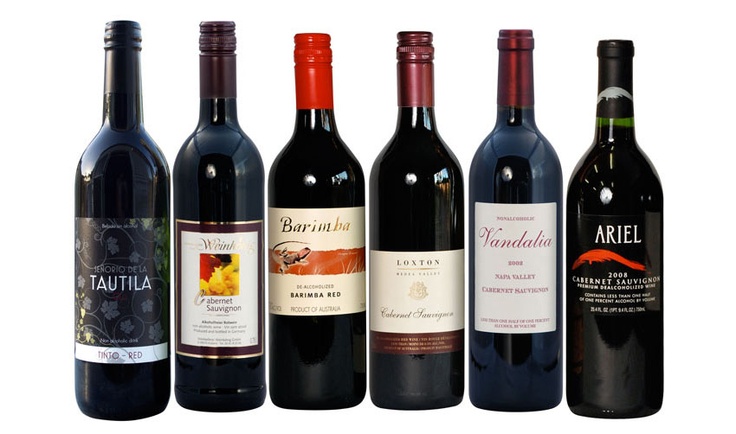In recent years, non-alcoholic wines have surged in popularity, reshaping the traditional wine industry and catering to a growing audience seeking mindful drinking alternatives. Unlike grape juice, non-alcoholic wines mimic the complexity, aroma, and experience of conventional wines, without the intoxicating effects. These beverages are ideal for those avoiding alcohol for health, religious, or lifestyle reasons, yet still desire the elegance and social aspects of wine drinking.
What Is Non-Alcoholic Wine?
Non-alcoholic wine is real wine that has undergone a process to remove or reduce its alcohol content, typically to below 0.5% ABV (alcohol by volume). This distinction is critical—non-alcoholic wine is not the same as grape juice. The wine begins its life as any other, undergoing fermentation and ageing, developing the depth and character expected from a fine vintage. The alcohol is then removed through sophisticated techniques, ensuring the beverage retains its body, tannins, and unique profile.
How Is Non-Alcoholic Wine Made?
There are several advanced techniques used to de-alcoholise wine:
- Vacuum Distillation: This process removes alcohol at a lower temperature, preserving the wine’s flavour and aroma. It’s one of the most common methods used in premium non-alcoholic wines.
- Reverse Osmosis: In this method, wine is passed through a special filter to separate the alcohol and water from the flavour compounds. The alcohol is then evaporated, and the remaining components are re-blended.
- Spinning Cone Technology: Used in high-end production, this method involves cones that spin at high speed to separate the wine’s components through centrifugal force and low-temperature steam.
Each technique aims to preserve the integrity of the wine, delivering a satisfying, complex, and enjoyable drinking experience.
The Rise in Popularity of Non-Alcoholic Wines
Health-conscious consumers and those participating in movements like “Sober October” and “Dry January” have fueled a demand for sophisticated alcohol-free options. Beyond these trends, non-alcoholic wines appeal to pregnant women, designated drivers, and individuals managing chronic health conditions.
Moreover, the cultural perception of alcohol-free drinks has shifted. They are no longer seen as bland or inferior but are instead celebrated for their craftsmanship and complexity. Global sales of non-alcoholic wine are expected to grow steadily, making it a vital segment of the beverage industry.
Health Benefits of Choosing Non-Alcoholic Wine
Choosing non-alcoholic wine offers a variety of health advantages, such as:
- Lower Caloric Content: Removing alcohol significantly reduces calorie counts, making it a better option for those managing weight.
- Heart Health: Some studies suggest that polyphenols in red wine, such as resveratrol, may benefit cardiovascular health—these compounds often remain even after alcohol is removed.
- Reduced Risk of Alcohol-Related Issues: Non-alcoholic wine pleasures wine drinking without the risks of addiction, liver damage, or impaired decision-making.
- Improved Sleep and Mental Clarity: Many drinkers report better sleep and mental sharpness when abstaining from alcohol.
Types of Non-Alcoholic Wines Available
Non-alcoholic wine is available in a variety of styles to suit every palate:
- Red Wines: Rich and full-bodied, non-alcoholic red wines, such as Merlot and Cabernet Sauvignon, offer deep berry notes, structured tannins, and a satisfying mouthfeel.
- White Wines: Crisp and refreshing, non-alcoholic whites like Chardonnay or Sauvignon Blanc are perfect for warm days and light meals.
- Rosé Wines: Offering floral notes and a hint of sweetness, rosé is a trendy choice, and the non-alcoholic versions are just as enjoyable.
- Sparkling Wines: Perfect for celebrations, non-alcoholic sparkling wines mimic the effervescence and festive spirit of Champagne, with less than 0.5% ABV.
Pairing Food with Non-Alcoholic Wine
Pairing non-alcoholic wines with food follows the same principles as traditional wine. A few examples include:
- Red wines with roasted meats, grilled vegetables, and aged cheeses.
- White wines with seafood, poultry, and creamy pasta dishes.
- Rosé wines with fresh salads, goat cheese, and charcuterie boards.
- Sparkling wines with appetisers, sushi, and desserts.
The right pairing enhances both the wine and the dish, creating a harmonious dining experience.
Best Brands in the Non-Alcoholic Wine Industry
Several brands are pioneering high-quality non-alcoholic wines, including:
- Leitz Eins Zwei Zero (Germany): Known for their crisp Riesling and Pinot Noir.
- Ariel Vineyards (California): Produces award-winning de-alcoholised reds and whites.
- Fre by Sutter Home: Offers a wide variety including Chardonnay, Merlot, and Sparkling Brut.
- Noughty by Thomson & Scott (UK): Organic and vegan sparkling wines that have gained international acclaim.
These brands emphasize sustainable practices, grape quality, and refined de-alcoholization techniques, providing a premium experience for discerning consumers.
Who Should Try Non-Alcoholic Wine?
Non-alcoholic wine is for everyone. Whether you’re sober, reducing your alcohol intake, or simply curious, these wines offer a new way to enjoy social gatherings, romantic dinners, or quiet evenings with sophistication—without compromise. Wine lovers who want to take a break from alcohol without sacrificing ritual and taste will especially appreciate this growing category.
Conclusion
Non-alcoholic wine is more than a passing trend—it’s a lifestyle choice for millions. With increasing innovation, global availability, and growing cultural acceptance, non-alcoholic wines are carving out their own place in the wine world. As production techniques improve and palates evolve, these alcohol-free alternatives promise to deliver the full wine experience—minus the hangover.
Whether you’re toasting at a wedding, enjoying a picnic, or relaxing at home, non-alcoholic wine proves that you don’t need alcohol to raise a glass and savor the moment.








